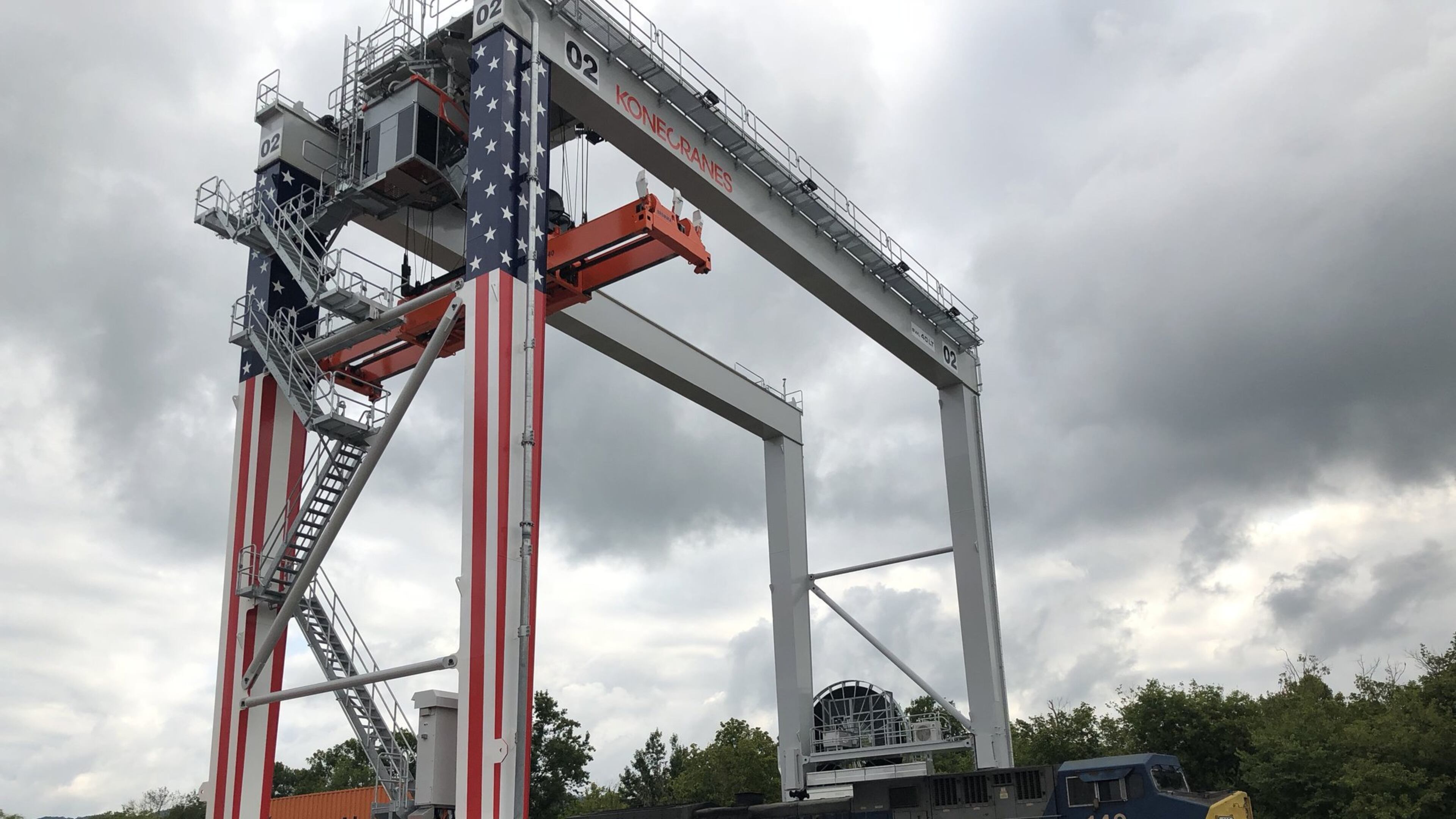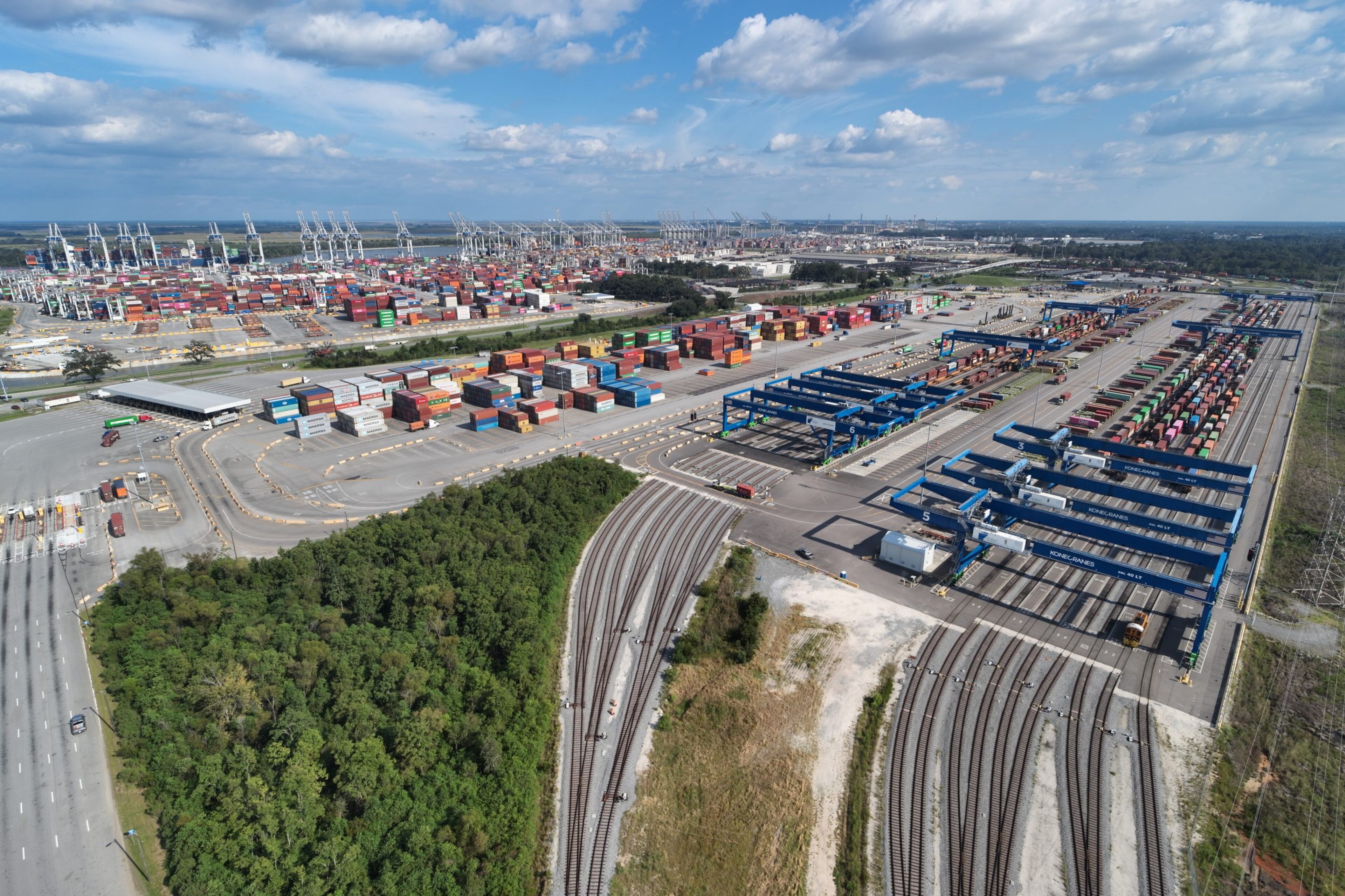Ports authority officials greenlight Gainesville inland port

SAVANNAH ― A long-promised inland port and rail terminal near Gainesville will open in 2026, Georgia Ports Authority officials said Tuesday.
The authority’s board gave final approval to construct a $127 million facility to be known as the Blue Ridge Connector. Site work is already underway on the 104-acre property located off Interstate 985 and Tuesday’s vote clears the way for construction to begin.
The property is owned by the ports authority and is 324 rail miles from the Port of Savannah.
The project was announced in 2018 by then-Gov. Nathan Deal and is modeled after a similar inland port that opened that same year in Crandall in northwest Georgia near Dalton. The Blue Ridge Connector is more than twice the size of the northwest Georgia terminal and is served by eight rail lines operated by Atlanta-based Norfolk Southern.
The Dalton area facility, known as the Appalachian Regional Port or ARP, boasts three rail lines belonging to CSX.

Ports Authority CEO Griff Lynch called the Gainesville facility a “gamechanger” that will take as many as 100,000 trucks annually off Georgia highways and roads. Cargo containers moving between points in the Appalachian corridor and the Port of Savannah will travel via rail connection.
The sister facility near Dalton has reduced the truck traffic on Atlanta’s interstates as well as Interstates 75 and 16. The Appalachian Regional Port handled 33,700 rail-transported containers in the fiscal year that ended June 30, 2023, up 18% from the previous year.
“The plan worked with the ARP and we knew we wanted to do more of this,” Lynch said. “The Gainesville inland port will serve the I-85 corridor in a similar way to how the ARP serves I-75 and the Midwest.”
Georgia’s ports are huge economic drivers. The Port of Savannah and other ports authority facilities support 561,000 jobs and contribute $59 billion annually to the state’s gross domestic product, a recent study showed. The ports’ business has nearly doubled over the last decade, and officials have announced expansion projects that will significantly boost container capacity by 2030.
With such projected growth, inland port facilities are considered vital to the continued success of the Georgia Ports Authority’s “1,2,3″ cargo strategy — one day off the vessel, two days transportation, and third day availability. The authority opened an onsite rail transfer yard in Savannah, the Mason Mega Rail Terminal, in 2021 that can transport 2 million containers a year along rail lines owned by CSX and Norfolk Southern.
Opening the Gainesville inland port in 2026 would meet the next projected uptick in cargo container traffic. Volume at the Port of Savannah continued to sag in October, as it has throughout 2023, as retailers and distributors dealt with bloated inventories and lackluster orders.
Industry forecasts predict volumes will stabilize in 2024 and rebound in 2025 and 2026, Lynch said. Both he and Kent Fountain, the GPA board chairman, noted that current volumes remain almost 5% ahead of pre-pandemic numbers.
“It’s almost like how they score some things in the Olympics — you throw the best score out,” Fountain said. “This October was our third-best October ever, it was just worse than the last two.”
As for the Blue Ridge Connector, the inland port is located at the Gateway Industrial Center in Hall County near the shores of Lake Lanier. The business park is also home to a Kubota agricultural equipment factory, a Japanese company and Port of Savannah user, and the state-owned Georgia Poultry Laboratory.
The Gainesville inland port is another piece of former Gov. Deal’s legacy. He is a Hall County native and his longtime campaign chairman, Philip Wilheit, was once a partner in the Gateway Industrial Center. Wilheit’s son, Philip Wilheit Jr., now sits on the Georgia Ports Authority board.



